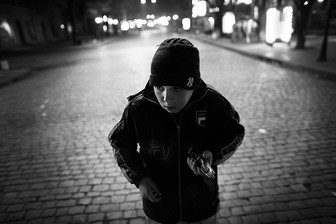Home
Focus Areas
About Us
The bill, presented by Education Secretary Bridget Phillipson, aims to strengthen child welfare, safeguarding, and educational standards across England. Here are the key components:
Child Protection and Monitoring:
- New mandatory registers to track children not in formal education
- Introduction of a unique identifier system (similar to National Insurance numbers) to improve service coordination
- Restrictions on home-schooling rights when children are under protection investigations
- Enhanced collaboration between schools, social care, and local authorities
Educational Reforms:
- Requirement for all new teachers to hold or be working toward Qualified Teacher Status (QTS)
- Standardization of teacher pay and working conditions across all schools, including academies
- Greater local council authority over school admissions, particularly for vulnerable children
Financial and Support Measures:
- £500 million additional funding allocated for family support services in 2025
- Implementation of Family Group Decision-Making to involve extended family in welfare decisions
- Required "local kinship offer" from councils to support family members caring for children
- Caps on profit-making in private children's social care services
The bill has received strong support from Dame Rachel de Souza, the Children's Commissioner, who emphasized its urgency for protecting vulnerable children. Education Secretary Phillipson has described it as a "seminal moment for child protection," emphasizing the government's commitment to putting children's interests first.
Selected Grant News Headlines
A customized collection of grant news from foundations and the federal government from around the Web.
The Weeknd was awarded the Key to the City and honoured with The Weeknd Weekend by the City of Toronto.The ceremony was attended by Toronto Mayor Olivia Chow, youth from the Boys & Girls Club of West...more
The initiative saw ZTE donate essential supplies and digital connectivity solutions worth 1 million THB to a Public charity organization, Baan Nokkamin Foundation.This foundation provides foster...more
13-year-old Ricky was diagnosed with leukemia for the second time in his young life.Traditional medications were failing, and Ricky's doctor dismissed the recently approved stem cell treatments...more
Notably, this was the first Children's Entrepreneur Market event held in the country.HATCH Fest honored Juneteenth with three public readings of the Emancipation Proclamation by local community...more
Sit Still Kids Salon Opens in Atlanta's Peachtree Battle neighborhood.Salons specifically designed for children are evolving to provide tailored services for kids with diverse needs.Businesses are...more
Debit cards issued by NYC's summer youth job program tied to $17 M ATM fraud scam: sources.The scam led to ATMS across the Big Apple being banged for big bucks from July 11-13.The cash ended up in...more
The passing of my father was a transformative moment for me.This perspective shift is why I now dedicate much of my energy to youth programs and community development.I've leaned heavily on...more
Dobbs announced the need for volunteers at the Central Arkansas Veterans Healthcare System for Compassionate Contact Corps.Volunteers are matched with veterans that are experiencing loneliness or are...more
Jefferson Parish Young Marines receive national honors.Sgt.Taylor Science and Technology Academy, was named the Honor Graduate for the Young Marines 2025 National Leadership Academy-Senior Leadership...more
Monterey County Workforce Development Board Green Cadre program receives $2M state grant.Program will provide up to 90 young adults, between the ages of 18 and 30, with paid job training, work...more
Youth News from...
Community Foundation of Abilene
New York Community Trust
Coastal Community Foundation
San Diego Foundation
Community Foundation of Sarasota County
Manatee Community Foundation
Bloomberg Philanthropies
Delaware Community Foundation
Kern Community Foundation
Key Biscayne Community Foundation
Social Entrepreneurship
Spotlight
When it Comes to Social Enterprises, Failure is the Best Platform for Innovation

In the world of social enterprises, failure is a cringe-worthy moment nobody wants to talk about. But, social entrepreneurs can benefit from their failures.











